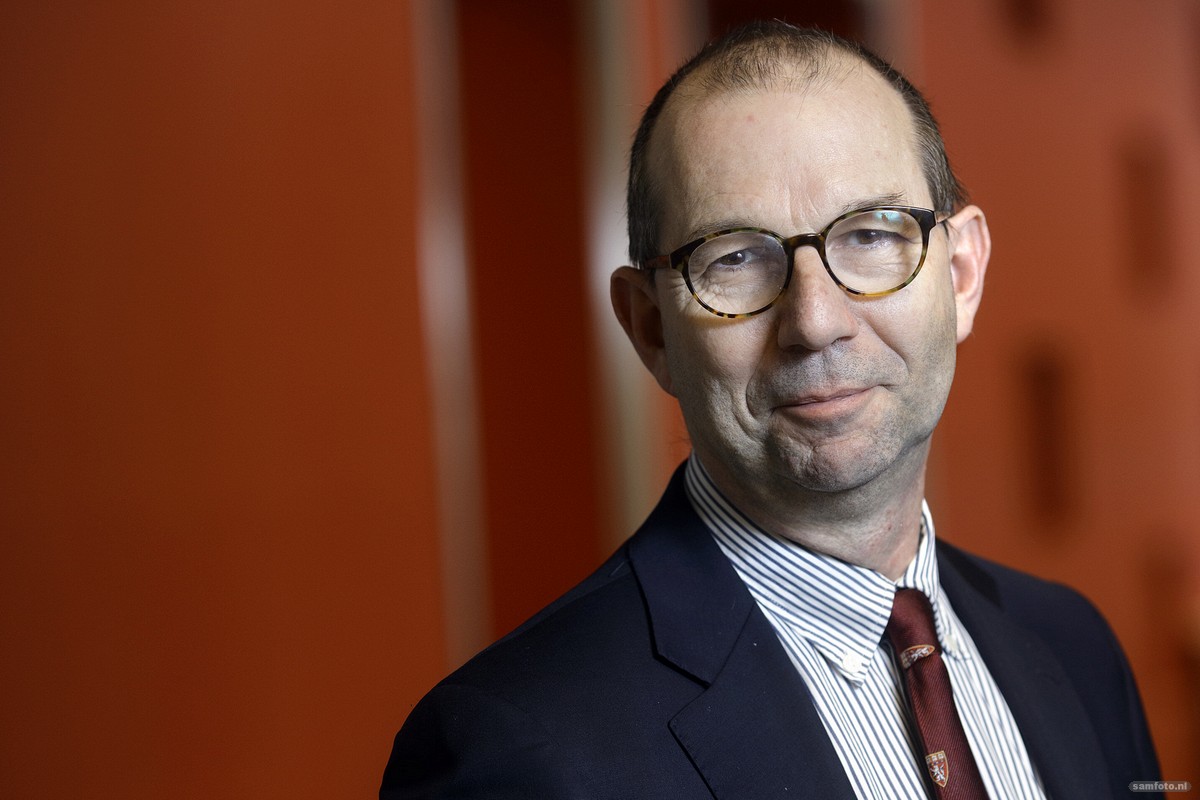Professor Rob Mudde is the new Vice-President Education at TU Delft. He would rather see ambitious students than an entry requirement specifying a seven for maths B. “An ambitious student that only got a six, should be able to cope.”
Rob Mudde: “Ambitious is an important concept and it is different to excelling”. (Photo: Sam Rentmeester)
Congratulations on your appointment. What is the first thing that you are going to do on education?
“Gather information. My very first discussion for the Education portfolio is with the Student Council. It is enormously important to first sit around the table with the students. They represent 24,000 people. What are their concerns and desires? The next step is to do a round along the faculties to hear what’s going on there. We recently evaluated the revision of the bachelor. I chaired the process and it gives you a good idea of what issues are at play in the faculties. This is one subject that I would like to discuss at some point.”
You have often said in interviews with Delta that students could be more ambitious, and you don’t mince your words. How strict will be you in meetings with the Student Council?
“I do have my own ideas, but that is different from being strict. I prefer to debate standpoints so that there is something to defend or to attack. By pushing the boundaries of these standpoints, you can further refine them. I still believe that the students that come to Delft should be ambitious students. ‘Ambitious’ is an important concept and it is different to excelling, which usually means attaining high grades. Ambition can surpass high grades. You can be an ambitious student and still only get sevens. That’s fine, but you can’t be an ambitious student and have to do several resits.”
Talking about grades, your predecessor Anka Mulder was thinking about experimenting with having at least a grade seven in maths B as an entry requirement. Do you think that is a good idea?
“I think it should be a bit more nuanced. Education means offering people opportunities. An ambitious student that has attained a six will be able to cope. Shutting the door is not always a good thing. You could very well be a student who works hard and scrapes through with a six, but who will work even harder here. Should we turn this person away? Will they be bad engineers? I’m not convinced. What we do need to do is tackle the high drop-out rates. If all our students were highly ambitious, I believe that the drop-out rate would, well, drop.”
In a letter that you sent to Delta, you argued for a change in the study culture. For you, the contribution of students was crucial. How are you planning to change the study culture?
“This is one of the reasons that I first want to go to the Student Council. You don’t change a culture by issuing a document or a rule, but by jointly declaring where you want to go. I believe that we can only do this if the students are part of this. They need to live and breathe Delft. We don’t do anything by halves at Delft.”
‘I would like everyone to be able to sit at their computers in their own time and in their own place and follow our courses’
You have had a leadership role in developing the University’s vision of education. Where do you want TU Delft to be in ten years’ time in terms of education?
“I would like everyone to be able to sit at their computers in their own time and in their own place and follow our courses so that we can use the planned contact times on the things that you can’t easily do through books or films. These could be conceptual thinking, designing and so on. I hope that we will be down this route between now and five years. The second thing is flexibility in education. At the moment, everyone takes exams at the same time for organisational reasons. What if we could reach the same quality but use electronic exams? You press a button and up pops an exam, at the time that you are ready to take it. I have no idea now how this could be organised, but we can start looking into it. I think that we should also start taking steps towards inter-disciplinary education. That students may be free in choosing subjects.”
TU Delft aspires to grow to up to 25,000 students. How will you manage the in-flow?
“I have no concrete suggestions at this point. Part of the pressure is the enormous flow of international students. If I had to choose, I think that it would be better to internationalise the masters rather than the bachelors. And still, I would not rule out that we may have to impose a numerus fixus on several bachelor courses. It would have quite a high number though, to avoid the situation that we now have in Computer Science Engineering.”
Would you want to do this by reinstating Dutch-language bachelors?
“It is something that we should think about. It would mean that part of the subject would be taught in Dutch, but you could of course still have half the subjects taught in English.”
Would a quota be an idea?
“If you did not have to take all sorts of rules and regulations into consideration, a quota may not be a bad thing to help keep the diversity. But it would quickly be labelled as discriminatory, I’m afraid.”
Which is now the case with Computer Science Engineering. A stop on non-EU students is not permitted.
“No, it’s not. But keeping the balance is really hard.”
Also read our interview with Rob Muddes colleague rector magnificus Tim van der Hagen: ‘At least half of bachelor’s students should be Dutch’
Do you have a question or comment about this article?
c.j.c.vanuffelen@tudelft.nl


Comments are closed.